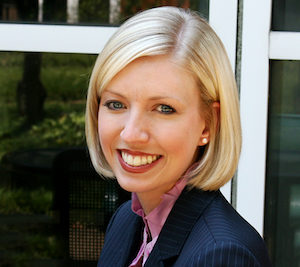By Arial Struthers
When applying to a program like a Masters in Finance or Master of Science in Finance (MSF), you may ask yourself how you can make your application stand out in the pool. Most candidates will know how to put their academic excellence and professionalism on display, but there are other opportunities to help an applicant soar above the rest. We sat down with Maura Clark, Director of Admissions, Vanderbilt MS Finance, who offered some insight into the admissions process and a few tips for candidates filling out their applications.
Who is an ideal MSF candidate?
The requirements to apply to an MS Finance program will be slightly different depending on the school, but there are several common areas. Business schools will look at your standardized test scores (GMAT/GRE/AE, etc), how you will contribute to the culture of the program, and most importantly, your educational and internship experience.

Maura Clark
“Don’t lean on something like finance or investment club experience; really think about internships. At the end of the day for MSF applications, nothing will replace internship experience,” said Clark.
Clark says that Vanderbilt looks for candidates who have career clarity, flexible focus, finance internship experience, and someone who will add value to the program. “Owen is not really a place where you can hide very easily. With 80-85 students, every student really matters and makes an impact in the community,” said Clark.
What can make my masters in finance application stand out?
Many MS Finance programs prefer students to come into the program with experience in certain courses, including calculus, statistics, entry-level accounting, and economic theory. These courses will showcase a student’s quantitative aptitude and demonstrate that a candidate has career clarity, meaning they have had a desire to enter the finance field long before deciding on a MSF degree. Clark notes that Vanderbilt will sometimes offer candidates who lack some of these experiences an opportunity to take certain courses online before starting the program, to get those necessary tools in their toolbox before diving into the rigorous coursework.
“We want to be flexible, because most students don’t set off going to college saying ‘I’m going to go to undergrad then get an MSF, then I’m going to go do this type of job.’ Sometimes, you don’t know that you need an MSF until you need an MSF,” said Clark.
Is Vanderbilt’s MSF program right for me?
One of the best ways to see if a program is right for you is by connecting with faculty and students who are currently in or have gone through your program of interest. Vanderbilt’s MS Finance Program has a group of more than 30 MSF Ambassadors who are current students that are willing to share tips and advice to candidates seeking admission to the program. As Clark says, “they are the perfect first group of people to reach out to” with any questions or concerns. Clark also advises candidates to reach out to faculty and alumni working in an industry they may be interested in to see how Vanderbilt Business played a part in them getting where they are in the working world.
“If you are someone who says, ‘I want to do consulting, and I am interested in Deloitte,’ then you need to find people who are at Deloitte and are in consulting and see how you stack up against them. Everyone has different gaps to fill, what do you need to do to become a more competitive applicant?” said Clark.
Click here to learn more about how you can get plugged in with Vanderbilt’s MS Finance program and the masters in finance application.